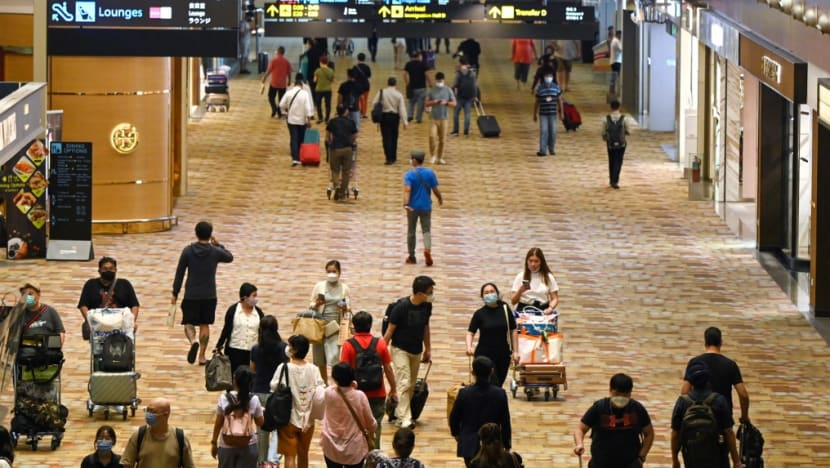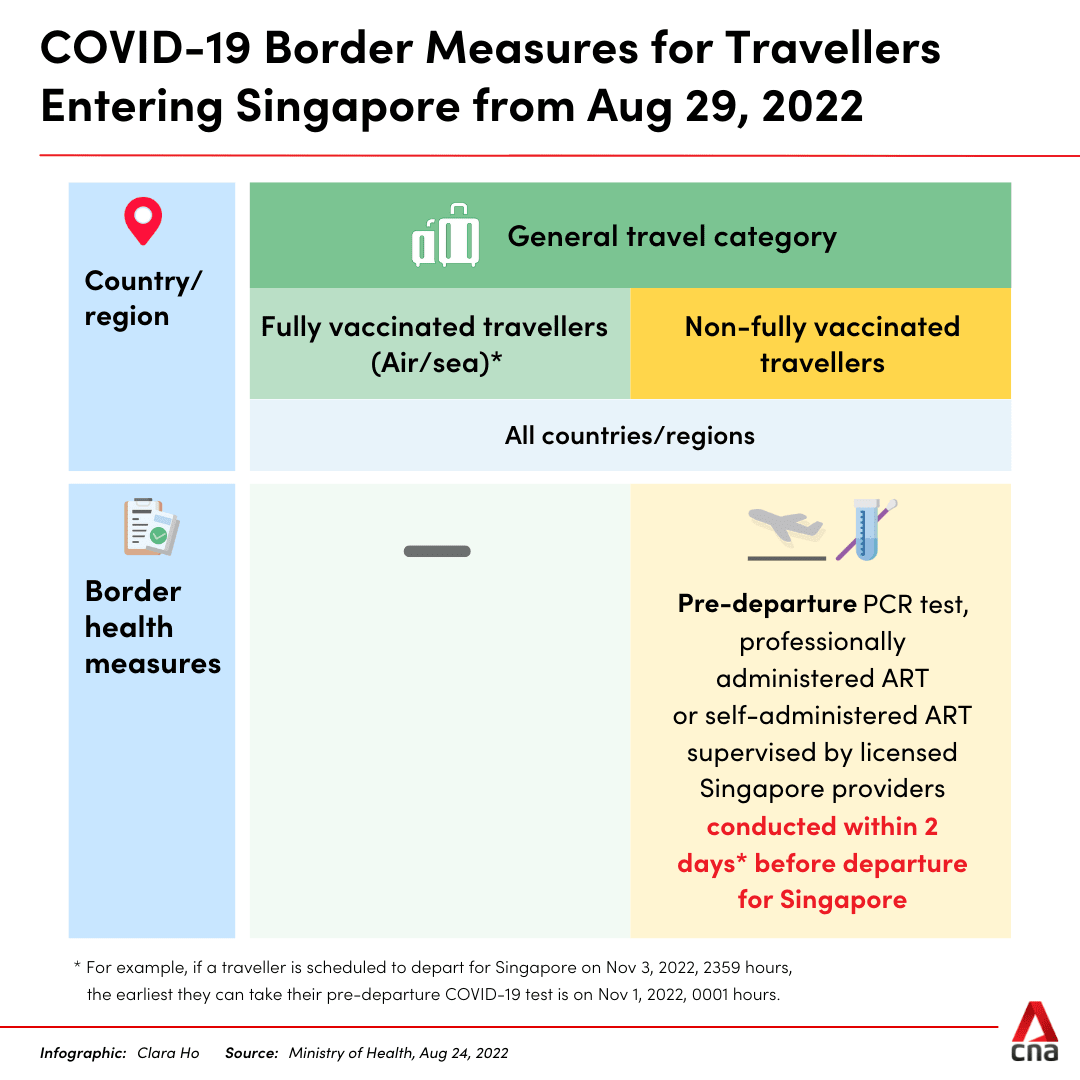Non-fully vaccinated travellers will soon be allowed to enter Singapore without applying for approval
These travellers will also not be required to undergo a stay-home notice, but the requirement for a pre-departure COVID-19 test will remain, said the Ministry of Health.

Travellers walk through a transit hall at Changi Airport in Singapore on May 13, 2022. (File photo: AFP/Roslan Rahman)
SINGAPORE: Non-fully vaccinated long-term pass holders and short-term visitors aged 13 and above travelling to Singapore from Monday (Aug 29) will no longer need to apply for entry approval, the Ministry of Health (MOH) said in a news release on Wednesday.
They will also not be required to undergo a seven-day stay-home notice (SHN) upon arrival or take a polymerase chain reaction test at the end of the SHN period, the ministry said, pointing to the improving local and global COVID-19 situation.
However, non-fully vaccinated travellers must still present a negative pre-departure test within two days before departing for Singapore, MOH said.
Non-fully vaccinated short-term visitors must still buy COVID-19 travel insurance to cover the duration of their stay in Singapore.
Related:
Currently, all non-fully vaccinated travellers are generally not allowed to enter Singapore except for "compelling reasons" like attending to a critically ill family member or if they are family members of a Singapore citizen, the Immigration and Checkpoints Authority said on its website.
"As long-term pass holders are expected to stay in Singapore for a longer period of time, they will continue to be required to meet all vaccination-differentiated safe management measures requirements after their arrival in Singapore," MOH said.
For travel to Singapore, travellers who test positive for COVID-19 should defer their travel plans and not board commercial flights or ferries, as they may infect fellow passengers and crew while infectious, MOH said.
"They should only resume their travel when they test negative, and at least 72 hours from the time they first test positive," it added.
Those who are vaccinated should travel on or after day 7 if they continue to test positive, while non-fully vaccinated people aged 12 years and above should only resume travel on day 14 if they continue to test positive, the ministry said.
MOH also reminded all travellers entering Singapore via air or sea to also submit their electronic health declaration before they enter Singapore, using the SG Arrival Card e-service up to three days before arrival.
"Travellers are strongly encouraged to do so before departing for Singapore to facilitate a smooth arrival process in Singapore," it said.
VACCINATION REQUIREMENTS FOR WORK PASS HOLDERS
Those putting in new applications for long-term passes and work passes must still be vaccinated against COVID-19, MOH said.
This is to sustain the high vaccination rates in the population, support safe reopening of society and economy, and minimise business disruptions, it said.
Those who wish to renew their work passes will not be subjected to a vaccination requirement from Oct 1, MOH said, although this will not apply to work permit and S Pass renewals for those living in dormitories or working in the construction, marine shipyard and process sectors.
These workers must still be vaccinated before renewing their passes as their worksites and dormitories are settings at higher risk of disease spread, MOH explained.
When asked about the potential easing of dormitory restrictions, like requiring residents to apply for a pass before heading out to four "popular places" on Sundays and public holidays, COVID-19 multi-ministry task force co-chair Lawrence Wong said the authorities will continue to review whether they could be relaxed.
"But in the longer term, not just for COVID, we also want to make sure that there is a good spread, and not a high concentration of people in a few places leading to other concerns," the Deputy Prime Minister said.
"Not necessarily COVID, could be security, could be congestion, other issues as well. So in fact, we are looking at how we can do more with recreational centres for example, so that there will be more options for our dorm workers during the weekends."

BOOKMARK THIS: Our comprehensive coverage of the COVID-19 pandemic and its developments
Download our app or subscribe to our Telegram channel for the latest updates on the coronavirus pandemic: https://cna.asia/telegram


















